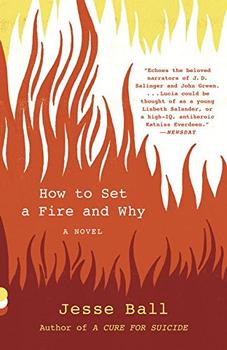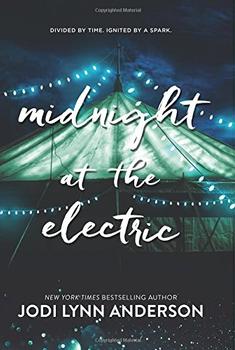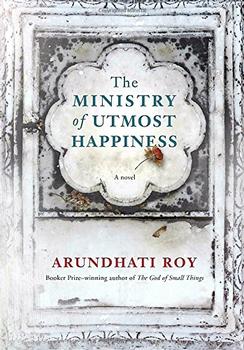 In How to Set a Fire and Why, Lucia claims to not remember exactly what occurred during an argument with her aunt's landlord, leaving her exact reasoning and motivation somewhat mysterious. In writing Lucia as an unreliable narrator, Jesse Ball draws from an established tradition.
In How to Set a Fire and Why, Lucia claims to not remember exactly what occurred during an argument with her aunt's landlord, leaving her exact reasoning and motivation somewhat mysterious. In writing Lucia as an unreliable narrator, Jesse Ball draws from an established tradition.
An unreliable narrator lies, expresses uncertainty or bias, or seems to have a misunderstanding of situations that occurred. The author may employ an unreliable narrator to intentionally mislead the reader or as a means of characterization. Part of the pleasure in encountering such a narrator is parsing out what is true and what is not. Teen and young adult narrators are some of the most obvious and well-known examples of the trope, and this makes logical sense. Adolescence is often a time of conflict, teenagers vacillate between uncertainty and confidence in their beliefs as they try to forge a concrete identity for themselves. They are often dishonest, caught as they are between childhood and adulthood, they push the limits, break the rules and lie to avoid punishment.
 In Midnight at the Electric, it is the year 2065, and teenager Adri is part of a carefully selected group departing Earth forever to live on Mars. Although the story takes place less than 50 years from now, massive planetary destruction has already taken place. As Adri puts it early on, "there's no Miami and hardly any Bangladesh and no polar bears…and they're paying billions of dollars to start a colony on Mars because humans need an exit strategy."
In Midnight at the Electric, it is the year 2065, and teenager Adri is part of a carefully selected group departing Earth forever to live on Mars. Although the story takes place less than 50 years from now, massive planetary destruction has already taken place. As Adri puts it early on, "there's no Miami and hardly any Bangladesh and no polar bears…and they're paying billions of dollars to start a colony on Mars because humans need an exit strategy."
Considered by some to be a sub-genre of science-fiction, and by others to be an entirely new genre, climate-fiction highlights climate change and its potential ramifications. Although books exploring man-made climate change date back to the '70s, it was only in 2007 that journalist Dan Bloom coined the term "cli-fi." Now, only one decade later, dozens of books fall under the definition of climate fiction, and the genre has seen an explosion in popularity.
 The Kashmir dispute between India and Pakistan occupies center stage in Arundhati Roy's The Ministry of Utmost Happiness. For readers unfamiliar with the dispute here is some background (this piece first ran as the "beyond the book" article for Roy's long awaited book):
The Kashmir dispute between India and Pakistan occupies center stage in Arundhati Roy's The Ministry of Utmost Happiness. For readers unfamiliar with the dispute here is some background (this piece first ran as the "beyond the book" article for Roy's long awaited book):
The conflict in Kashmir traces its roots back to the partition of India and Pakistan (see our Beyond the Book article for An Unrestored Woman).
When the British left India in 1947, Kashmir was not an Indian state, but was instead one of hundreds of smaller independent princely states. each with their own rulers, who swore loyalty to the British empire. As the British Raj withdrew, these princely states had to make the complicated decision as to whether to become a part of either India or Pakistan, or become independent countries. Most that were within contemporary India's borders chose to become a sovereign part of the country.
 The story of Clytemnestra is told in bits and pieces across several play cycles from the Classical period, and before. At the end of the House of Names, the author Colm Tóibín notes that, while the majority of the novel's events are not related to any source material, the overall shape of the narrative and the main characters are taken from The Oresteia by Aeschylus, Electra by Sophocles, Euripides' Electra, Orestes, and Iphigenia at Aulis. Clytemnestra, as well as Electra, make appearances in other plays and art forms throughout history, but are rarely humanized in the way that we see in Tóibín's book. In fact, the way in which House of Names is perhaps most subversive is how Tóibín humanizes these characters who have largely been understood to be villains in ancient Greek society.
The story of Clytemnestra is told in bits and pieces across several play cycles from the Classical period, and before. At the end of the House of Names, the author Colm Tóibín notes that, while the majority of the novel's events are not related to any source material, the overall shape of the narrative and the main characters are taken from The Oresteia by Aeschylus, Electra by Sophocles, Euripides' Electra, Orestes, and Iphigenia at Aulis. Clytemnestra, as well as Electra, make appearances in other plays and art forms throughout history, but are rarely humanized in the way that we see in Tóibín's book. In fact, the way in which House of Names is perhaps most subversive is how Tóibín humanizes these characters who have largely been understood to be villains in ancient Greek society.
 Yesterday, George Saunders won the Man Booker Prize for Lincoln in The Bardo. So you might be wondering what the bardo is! Find out in our "beyond the book" article. You can also read our review and browse an excerpt.
Yesterday, George Saunders won the Man Booker Prize for Lincoln in The Bardo. So you might be wondering what the bardo is! Find out in our "beyond the book" article. You can also read our review and browse an excerpt.
 I've read all of Fredrik Backman's works that have English translations. In fact, I was lucky enough to be one of the first early readers of his debut novel, A Man Called Ove. I realized then that I was witnessing the birth of an amazing talent and, to date, he hasn't ever let me down. Unfortunately, it's tough to find a whole lot out about Backman. A New York Times article notes that before he published Ove, he was a college dropout (where he studied religion), and it took him a while to become the "overnight success" he is today. He was a freelance writer for a Swedish magazine while working "as a forklift driver at a food warehouse, taking night and weekend shifts so that he could write during the day." He's married, has two children, is 35 years old, and lives near Stockholm. I also found out that his second novel, Things My Son Needs to Know about the World, never appeared in English, and that Beartown is sold in the UK with the title The Scandal.
I've read all of Fredrik Backman's works that have English translations. In fact, I was lucky enough to be one of the first early readers of his debut novel, A Man Called Ove. I realized then that I was witnessing the birth of an amazing talent and, to date, he hasn't ever let me down. Unfortunately, it's tough to find a whole lot out about Backman. A New York Times article notes that before he published Ove, he was a college dropout (where he studied religion), and it took him a while to become the "overnight success" he is today. He was a freelance writer for a Swedish magazine while working "as a forklift driver at a food warehouse, taking night and weekend shifts so that he could write during the day." He's married, has two children, is 35 years old, and lives near Stockholm. I also found out that his second novel, Things My Son Needs to Know about the World, never appeared in English, and that Beartown is sold in the UK with the title The Scandal.